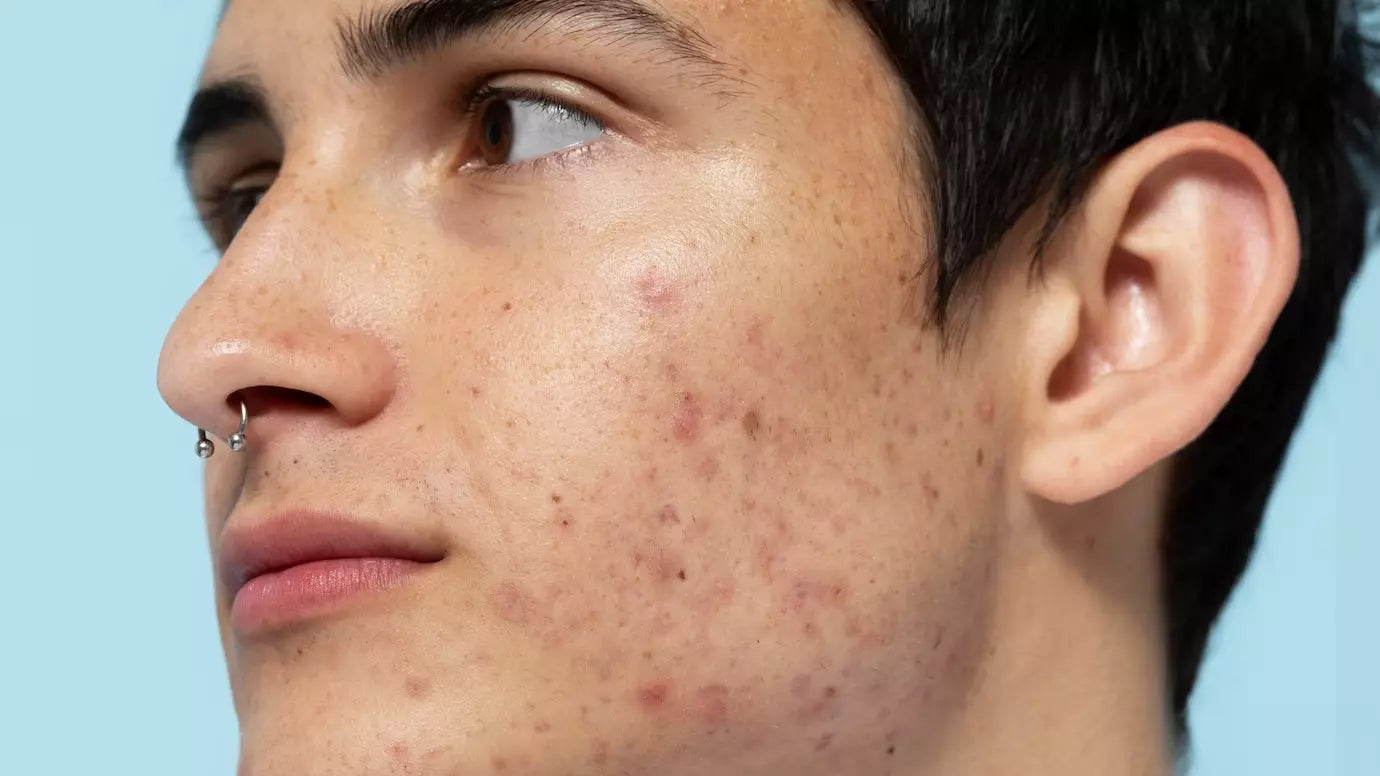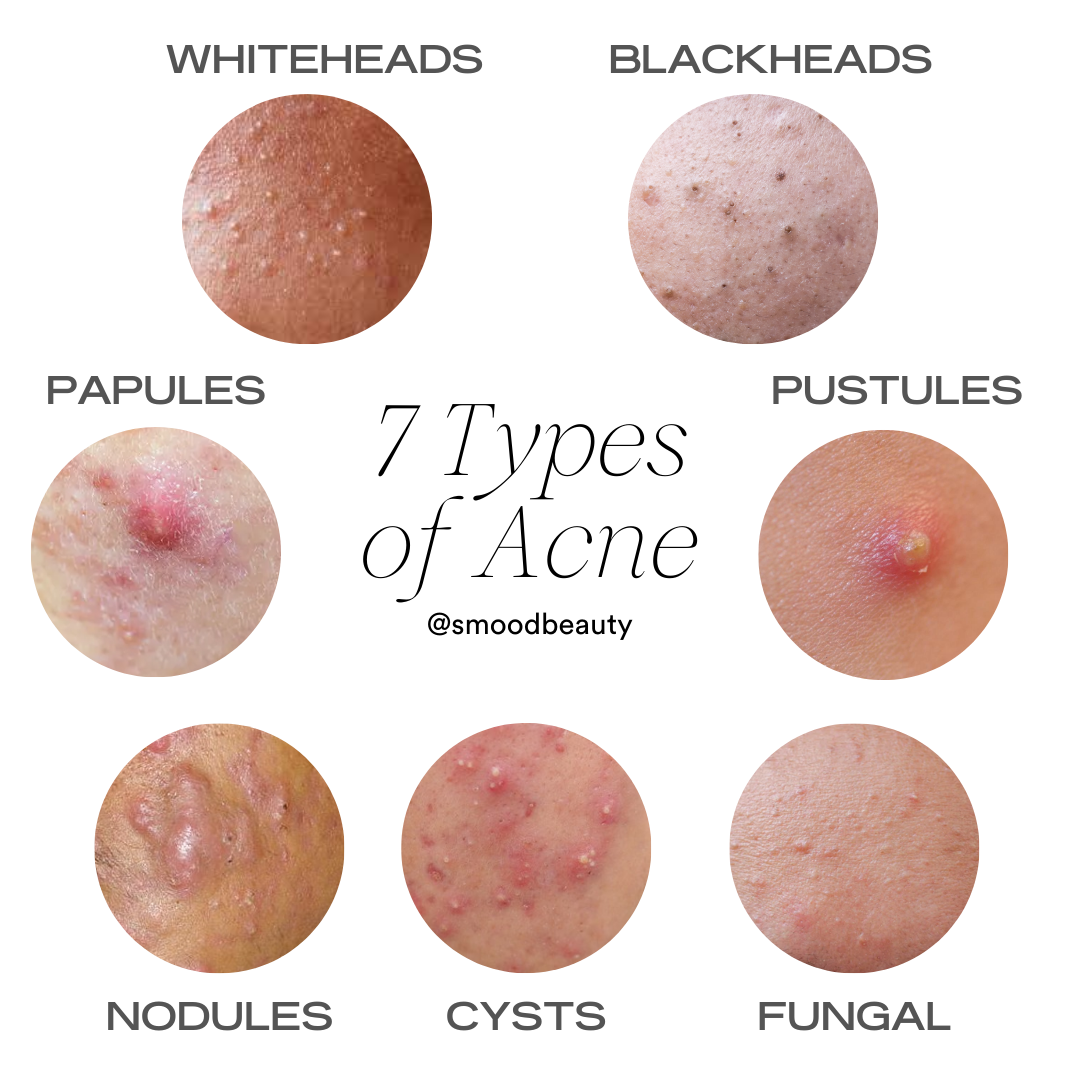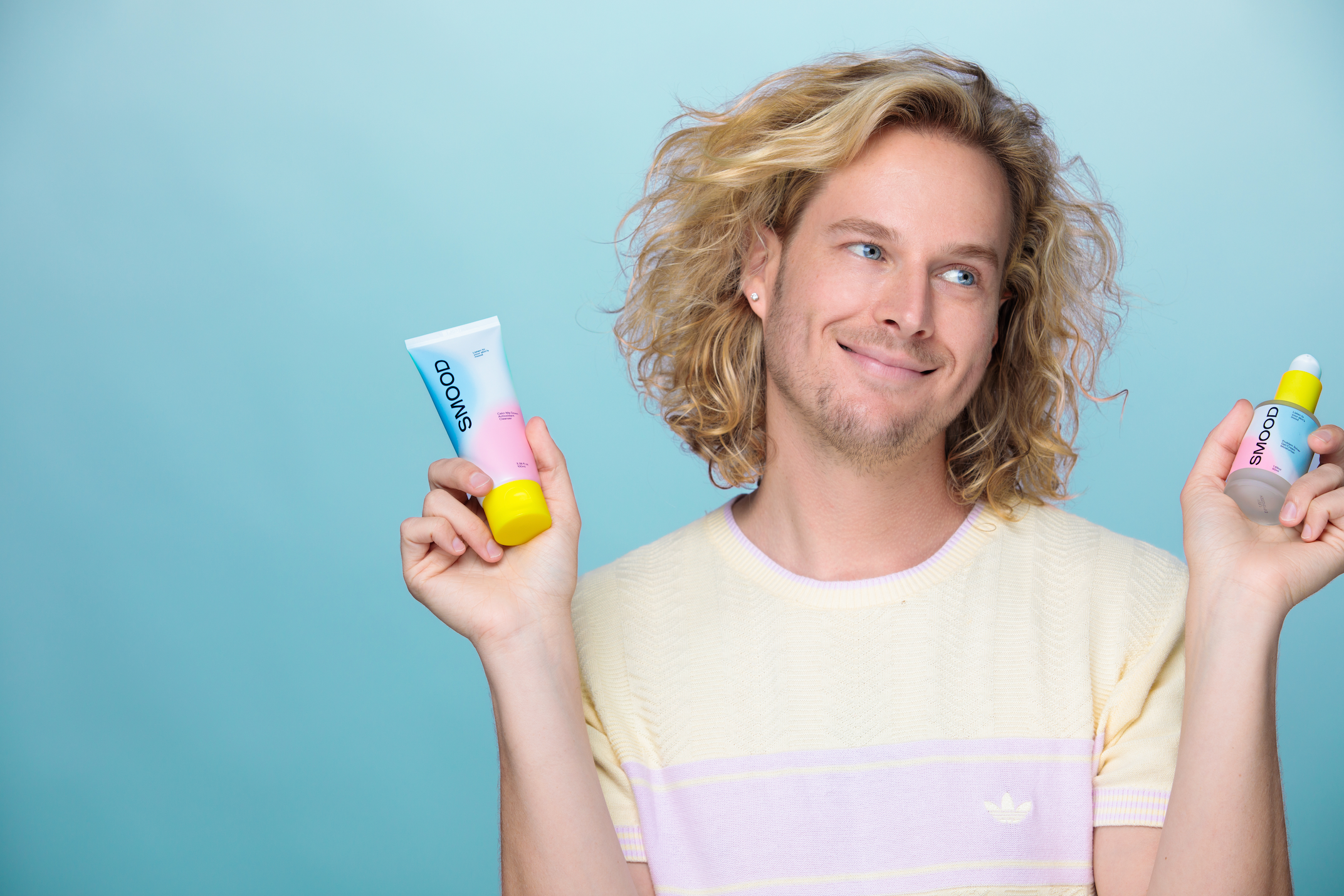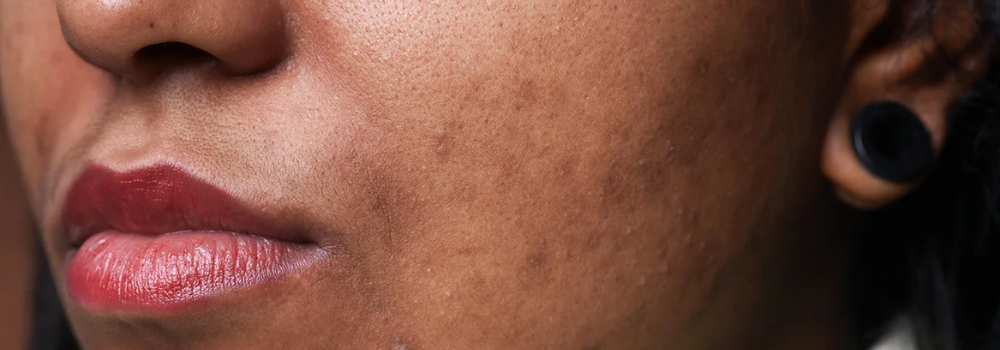
Acne 101: The Different Types of Acne and How to Treat Them
Acne 101: Different Types of Acne and How to Treat It
Acne is a skin condition that affects millions worldwide, manifesting in different types and severities. It's not just a teenage issue; adults can experience it too, leading to physical discomfort and affecting self-esteem. Understanding the types of acne and their treatments is the first step towards clear skin.
Understanding Acne: The Basics
Acne occurs when hair follicles become clogged with oil and dead skin cells. It can appear as various types of blemishes on the skin, including whiteheads, blackheads, pimples, cysts, and nodules. Hormones, diet, stress, and genetics play significant roles in acne development.

Types of Acne
-
Non-inflammatory Acne:
- Whiteheads (Closed Comedones): Small, flesh-colored bumps, caused by clogged pores.
- Blackheads (Open Comedones): Black or dark-colored spots that appear when the pore remains open, exposing the sebum (skin oil) to air.
-
Inflammatory Acne:
- Papules: Small, red, raised bumps caused by infected hair follicles.
- Pustules: Similar to papules but filled with pus. They have a white or yellow center.
- Nodules: Large, solid, painful lumps beneath the surface of the skin, formed by the buildup of secretions deep within hair follicles.
- Cysts: Large, pus-filled lesions that look similar to boils. They are deep, painful, and can cause scars.
Non-Inflammatory Acne
As you can see - acne doesn't just come in one form! It's also important to note that each type of acne usually has a more effective way of treating it.
1. Whiteheads (Closed Comedones)
- Characteristics: Small, under-the-skin bumps that appear white.
- Treatment: Retinoids are effective, as they increase cell turnover and prevent hair follicles from clogging. Over-the-counter options include adapalene gel (Differin), while tretinoin and tazarotene require a prescription.
2. Blackheads (Open Comedones)
- Characteristics: Black or dark dots on the skin, open at the surface.
- Treatment: Salicylic acid is a go-to as it helps dissolve the type of skin debris that clogs pores. Benzoyl peroxide can also be used to kill bacteria and reduce inflammation.

Inflammatory Acne
3. Papules
- Characteristics: Small, red, raised bumps caused by infected hair follicles.
- Treatment: Topical antibiotics reduce bacteria on the skin, while niacinamide can help reduce inflammation. For persistent cases, oral antibiotics may be considered.
4. Pustules
- Characteristics: Red, tender bumps with white pus at their tips.
- Treatment: A combination of benzoyl peroxide and topical antibiotics often works well. In some cases, a gentle steroid cream might be used to reduce inflammation.
5. Nodules
- Characteristics: Large, painful, solid pimples that are deep in the skin.
- Treatment: Oral isotretinoin (Accutane) is highly effective for severe acne but requires close monitoring due to its potential side effects. Oral antibiotics and hormonal treatments (for women) are also options.
6. Cysts
- Characteristics: Large, pus-filled lesions.
- Treatment: Similar to nodules, isotretinoin is often the most effective treatment. Corticosteroid injections can also rapidly reduce swelling and promote healing.
Note about using oral isotretinoin for the treatment of acne:
At Smood our philosophy is all about using gentle skincare to help your acne. However, if you have very severe acne (nodular and cystic) all over, we do recommend consulting with a dermatologist because accutane will at least be able to get your current outbreak under control. This is a serious drug and will require you to get regular blood tests to make sure your health isn't negatively affected by the medication. Accutane is also not a permanent fix in some cases and may come back.

Targeted Acne Management Tips
- Consistency is Key: Regardless of the treatment, consistency in application or intake is crucial for effectiveness.
- Gentle Skincare Routine: Opt for mild cleansers and avoid over-exfoliating, which can irritate acne-prone skin.
- Lifestyle Considerations: A balanced diet, sufficient water intake, and stress management can support skin health.
- Professional Guidance: Dermatologists can offer personalized advice and treatments, tailoring solutions to your specific acne type and skin condition.
A special type of acne, which isn't caused by the regular P.acnes bacteria is known as fungal acne (ew, sounds gross - we know.)
7. Fungal Acne (Pityrosporum Folliculitis)
Unlike the typical acne caused by bacteria and clogged pores, fungal acne is prompted by an overgrowth of yeast (a type of fungus) within the hair follicles. It often presents as uniform small, itchy bumps and can be mistaken for traditional acne.
Characteristics: Small, red, itchy bumps that often appear in clusters. Fungal acne is usually found on the chest, back, and arms but can also appear on the face.
Treatment: Fungal acne requires different treatment than bacterial acne. Over-the-counter antifungal creams or shampoos (containing ketoconazole or selenium sulfide) applied to the affected area can be effective. Oral antifungal medications may be prescribed for more severe cases. It's also recommended to switch to non-oily skincare products, as oils can feed the yeast that causes fungal acne.
Maintaining a balanced skin microbiome is crucial for preventing fungal acne. Avoid tight clothing that traps heat and moisture, as this can create an ideal environment for yeast to thrive.
Final Thoughts
Understanding the type of acne you're dealing with allows for a more effective and targeted treatment approach. While over-the-counter products can offer relief for milder forms, more severe acne may require professional intervention. Remember, the journey to clear skin can take time, and a patient, informed approach is your best ally. Try to get your skin under control because the best way to get rid of acne scarring and pigmentation is to prevent it in the first place!



Leave a comment
This site is protected by hCaptcha and the hCaptcha Privacy Policy and Terms of Service apply.